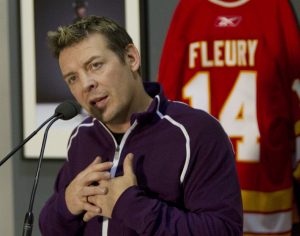Sexual Abuse in Canada’s Athletics: A Brief Overview
While sports are commonly thought to “be a safe, healthy environment which contributes to the positive development of young people, it is also an area where violence can manifest itself in various ways, including sexual assault.” Between 2 and 8 percent of all Canadian athletes are victims in sexual abuse at some point in their careers, a number which may come as a surprise to sports fans and sexual abuse prevention advocates alike.
Concerns for the safety and wellbeing of child and young adult victims have seen a sharp rise in recent years as incidents of sexual abuse in any environment—including athletics—are brought to the public’s attention thanks to the #MeToo movement and similar visibility efforts.
In as many as 98 percent of these incidents, the perpetrators of sexual abuse were coaches, teachers or instructors of the victims, violating the sense of trust and kinship that is highly valued in the context of an athletic team.
Is Sexual Abuse in Elite Sports a Hidden Epidemic?
KPMG’s Investigation of Scouts Canada
Recently, we covered CBC’s 2012 report on Scouts Canada that took place following an episode of The Fifth Estate. The investigation on The Fifth Estate sought to find answers to allegations that Scouts Canada had not been entirely honest about reporting each instance of sexual abuse, assault or misconduct occurring within their ranks to the authorities, as they had previously maintained for decades.
As a result, Scouts Canada then pledged to hand over previously-confidential reporting dossiers to auditing firm KPMG, who then launched an independent investigation to determine if (and when) Scouts Canada failed to report instances of sexual abuse that they were made aware of.
What follows is a brief summary of the result of KPMG’s investigation, which can viewed in full here.
Summary of KPMG Report
The 55-page report outlines KPMG’s investigative timeline, and goes into detail regarding the decision to launch the investigation, how the 486 cases were obtained from Scouts Canada (whether they were part of the initial hand-over or acquired later), and the processes through which these cases were analyzed to determine the level of action taken by Scouts Canada to address allegations of sexual abuse and assault from 1947 to 2011.
Scouts Canada and Their Failure to Report Sexual Abuse
Scouts Canada has come under fire in past years from critics and victims alike for the organization’s failure to report to the police instances and allegations of sexual abuse and assault by adult leaders against children. This apparent inaction is thought, by some, to be part of a systemic effort to protect child molesters within their ranks. Whether or not these claims are true has yet to be determined, but what has been determined by numerical data is that there has been some level of failure on the part of the Scouts Canada to report all instances of sexual abuse and assault to the authorities.
In October 2011, CBC first reported that Scouts Canada had signed confidentiality agreements out-of-court with more than a dozen child sex-abuse victims, and two months later, Scouts Canada issued a blanket apology to former scouts who were sexually assaulted by adult leaders as children.
In February 2012, Steve Kent, chief commissioner of Scouts Canada, acknowledged that Scouts Canada did not, in fact, report all allegations of sexual abuse and assault to police, despite decades of assurance that they had indeed done so, and handed off previously-confidential dossiers to auditing firm KPMG for investigation.
The KPMG Audit of Scouts Canada
A 2012 CBC article reports that Scouts Canada hired auditing firm KPMG to examine 486 cases from 1947 to 2011 in which adult scouting leaders were suspended or terminated on allegations of sexual abuse, misconduct or assault, following an investigation featured on CBC’s The Fifth Estate which examined how the organization has dealt with past instances of abuse within its ranks.
New Research May Help Victims of Traumatic Abuse
Memories of Abuse
As a lawyer who helps people with sexual abuse compensation claims one of the most common challenges my clients face is dealing with the intrusive effects of the memories of their abuse.
In the text Principles of Trauma Therapy: A Guide to Symptoms, Evaluation, and Treatment the authors John Briere and Catherine Scott identify several areas where memories of childhood abuse may effect psychological function in adults:
Negative pre-verbal assumptions and relational schemata: In other words, children who are victims of abuse tend to have a disproportionately negative self image. As adults, survivors become too defensive, angry or disconnected to have healthy inter-personal relationships.


